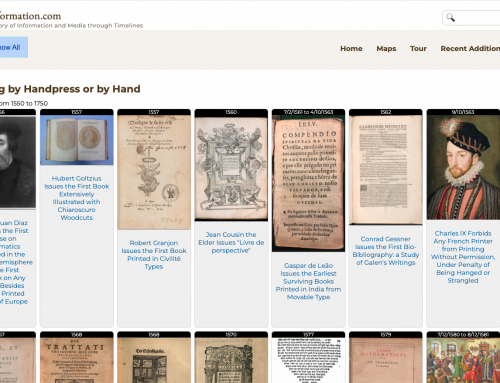A monthly series of bibliography- or book-related links recommended by members of the Society’s Council, initiated by Margaret Ford, Past President.
Earlier posts can be found at Council’s Choice.
Reformation Cardinal: Reginald Pole in 16th-Century Italy and England
 Cardinal Reginald Pole (1500–1558) has long deserved a better press. Elizabethan propagandists handed down a portrait of the last Catholic archbishop of Canterbury as a reactionary ‘Italianate Englishman’, unable to understand his native land or arrest its Providential destiny as a Protestant nation. A competing narrative condoles in his failure to return the country to its historic place in Catholic Europe, thwarted by bad luck and time. As ever, the reality, caught up in the storms of the Reformation, is more intricate and interesting. Henry VIII had ordered the assassination of the ‘archtraitor’ in 1537, infuriated by his cousin’s public opposition to the royal supremacy. Enemies in Rome accused Pole of being a crypto-Lutheran and sought to bring him before the Inquisition. And yet, remarkably, this enigmatic man, who came within one vote of being elected pope, became the intellectual leader of the Marian restoration and remains a decisive figure in the European Counter-Reformation.
Cardinal Reginald Pole (1500–1558) has long deserved a better press. Elizabethan propagandists handed down a portrait of the last Catholic archbishop of Canterbury as a reactionary ‘Italianate Englishman’, unable to understand his native land or arrest its Providential destiny as a Protestant nation. A competing narrative condoles in his failure to return the country to its historic place in Catholic Europe, thwarted by bad luck and time. As ever, the reality, caught up in the storms of the Reformation, is more intricate and interesting. Henry VIII had ordered the assassination of the ‘archtraitor’ in 1537, infuriated by his cousin’s public opposition to the royal supremacy. Enemies in Rome accused Pole of being a crypto-Lutheran and sought to bring him before the Inquisition. And yet, remarkably, this enigmatic man, who came within one vote of being elected pope, became the intellectual leader of the Marian restoration and remains a decisive figure in the European Counter-Reformation.
Reginald Pole’s story may be told from his books, as revealed by a new website from Lambeth Palace Library: https://www.lambethpalacelibrary.info/reformation-cardinal. The resource reproduces a physical exhibition at Lambeth, co-produced by New College, Oxford, which runs until mid-December 2023. Pole, famous among humanists as a collector of Greek manuscripts, assembled one of the period’s most intriguing libraries. The oldest manuscript on view here is from tenth-century Constantinople. Another, copied at the end of the fifteenth century at Reading abbey, he passed to the Aldine press in Venice in 1536 for the making of their famous edition of Aristotle’s Ethics, a rare example of a manuscript made in England being used to set a Continental printed edition. Pole’s library absorbed the books of Christophe de Longeuil (‘Longolius’), Europe’s leading Ciceronian, who had joined Pole’s household in Padua. They are replete with Longolius’s annotations, which Erasmus urged Pole to put into print. Later, the Cardinal’s collecting activities were more dangerous. He and his circle, which included Michelangelo and the poet Vittoria Colonna, were suspected of using books banned in Italy to inform their own heterodox writings. In 1538 he refounded the library of the English pilgrim hospice of St Thomas in Rome, donating books which are still on the shelves of the successor institution, the Venerable English College; three items are displayed. Pole’s own books, shipped to England when he returned as papal legate in 1554, passed to the resolutely Catholic fellows of New College. They remain there today, the celebration of which fact is the reason for this exhibition.
James Willoughby, Hon. Editor, The Library
